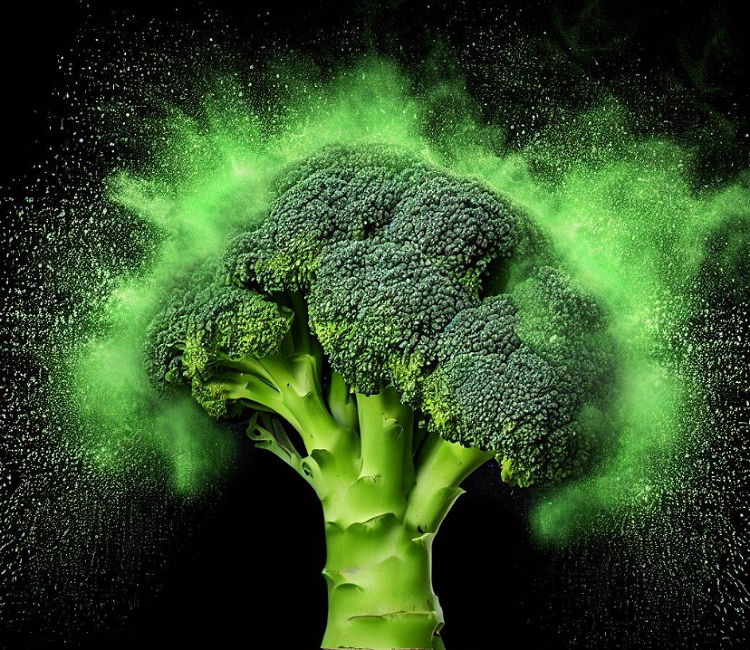Broccoli is already known for its fantastic qualities in reducing the likelihood of the development of conditions such as cancer and diabetes, thanks in part to its organosulfur compounds, such as glucosinolates and isothiocyanates which exhibit a range of bioactives including antioxidant activity. This is why we were always encouraged to eat them as children.
Now, a new study shows that broccoli, or broccoli sprouts in particular, contain an abundance of polysulfide molecules as well. The study built on the team’s previous working finding polysulfides in a range of cruciferous vegetables.
Polysulfides have been shown to have antioxidant properties, as well as play an important role in multiple cellular processes, such as regulating metabolism. In fact, a decrease in the presence of polysulfides has been reported in patients who have cardiovascular disease. So the health benefits are strong.
Looking at the process of germination and growth in broccoli sprouts, the researchers found that the presence of polysulfide molecules increases abundantly as the broccoli develops, with a 20-fold increase on the fifth day of germination.
The level of polysulfides within the broccoli sprouts were significantly higher than in the mature broccoli, as well as in the garlic and cabbage analysed alongside it.
Furthermore, the polysulfide content of the broccoli sprouts were compared with that of nine other vegetable sprouts: white radish, red cabbage, red radish, watercress, mustard, Welsh onion, water spinach, alfalfa, and okra. It was found that broccoli sprouts had the highest polysulfide content.
However, why this process happens and why broccoli sprouts produce such an abundance of polysulfides during the growing process, remains unclear.
On top of this, they also discovered a number of unknown polysulfides with an indeterminate molecular structure.
The study, by shining a light on broccoli’s polysulfide content, provides an incentive for the greater promotion of broccoli sprouts in aid of human health.
“The discovery of the significant increase in polysulfide content during the sprouting process from broccoli seeds was completely by chance and very surprising,” said Assistant Professor Shingo Kasamatsu, who led the study.
“This finding suggests that polysulfides may play an important role in the process of plant germination and growth. Further investigation of the pharmacological function of these unknown polysulfides could lead to the development of new preventive and therapeutic approaches and medicines for neurodegenerative diseases, stroke, cancer, inflammation, and other oxidative stress-related diseases.”
In the future, the team plan to investigate polysulfide production in broccoli sprouts and the physiological function of endogenous polysulfides in sprout growth and the germination of seeds.
Sourced From: Redox Biology
'Untargeted polysulfide omics analysis of alternations in polysulfide production during the germination of broccoli sprouts’
Published on: November 2023
Doi: https://doi.org/10.1016/j.redox.2023.102875
Authors: S. Kasamatsu, T. Owaki, S. Komae, A. Kinno, T. Ida, T. Akaike, H. Ihara




